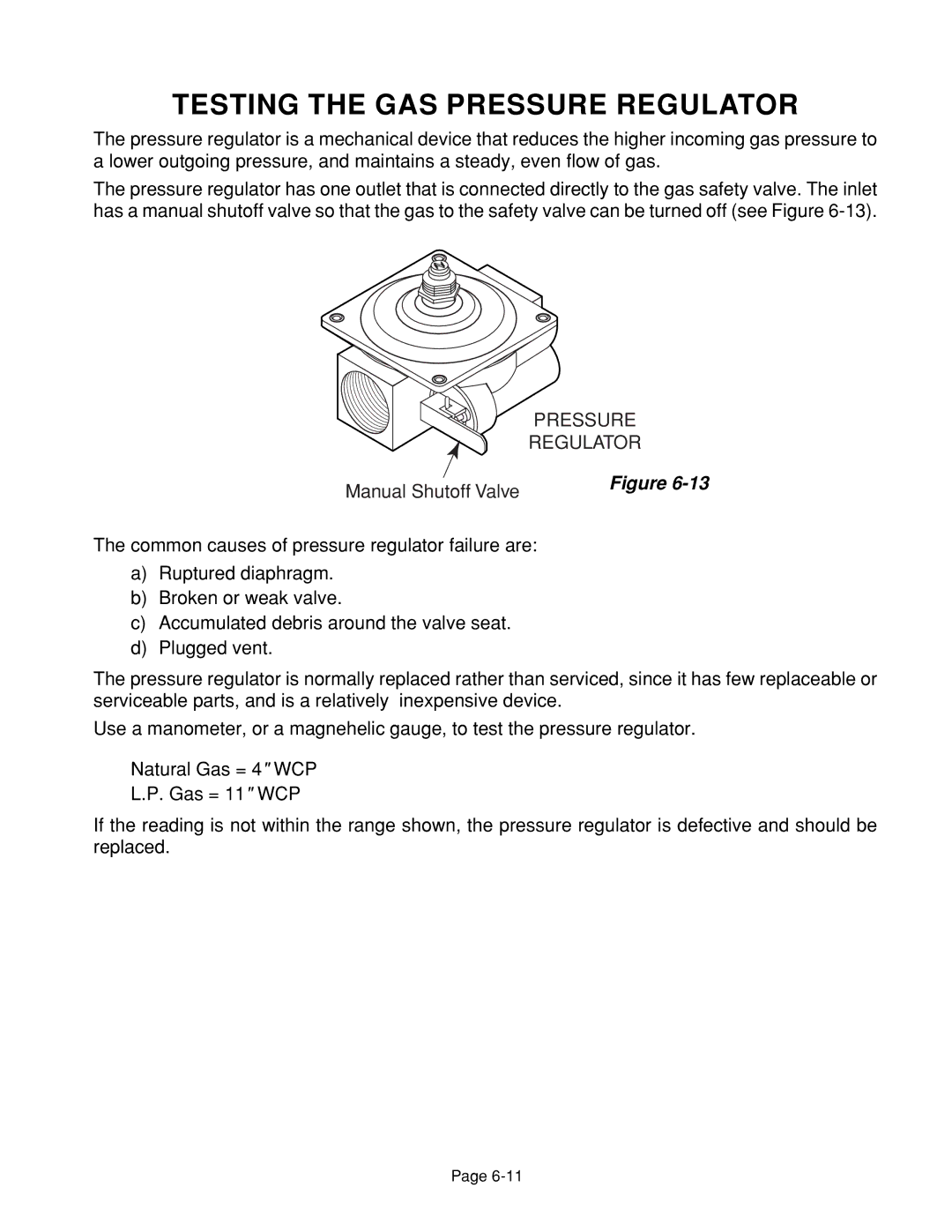
TESTING THE GAS PRESSURE REGULATOR
The pressure regulator is a mechanical device that reduces the higher incoming gas pressure to a lower outgoing pressure, and maintains a steady, even flow of gas.
The pressure regulator has one outlet that is connected directly to the gas safety valve. The inlet has a manual shutoff valve so that the gas to the safety valve can be turned off (see Figure
PRESSURE
REGULATOR
Manual Shutoff Valve | Figure |
|
The common causes of pressure regulator failure are:
a)Ruptured diaphragm.
b)Broken or weak valve.
c)Accumulated debris around the valve seat.
d)Plugged vent.
The pressure regulator is normally replaced rather than serviced, since it has few replaceable or serviceable parts, and is a relatively inexpensive device.
Use a manometer, or a magnehelic gauge, to test the pressure regulator.
Natural Gas = 4" WCP
L.P. Gas = 11" WCP
If the reading is not within the range shown, the pressure regulator is defective and should be replaced.
Page
